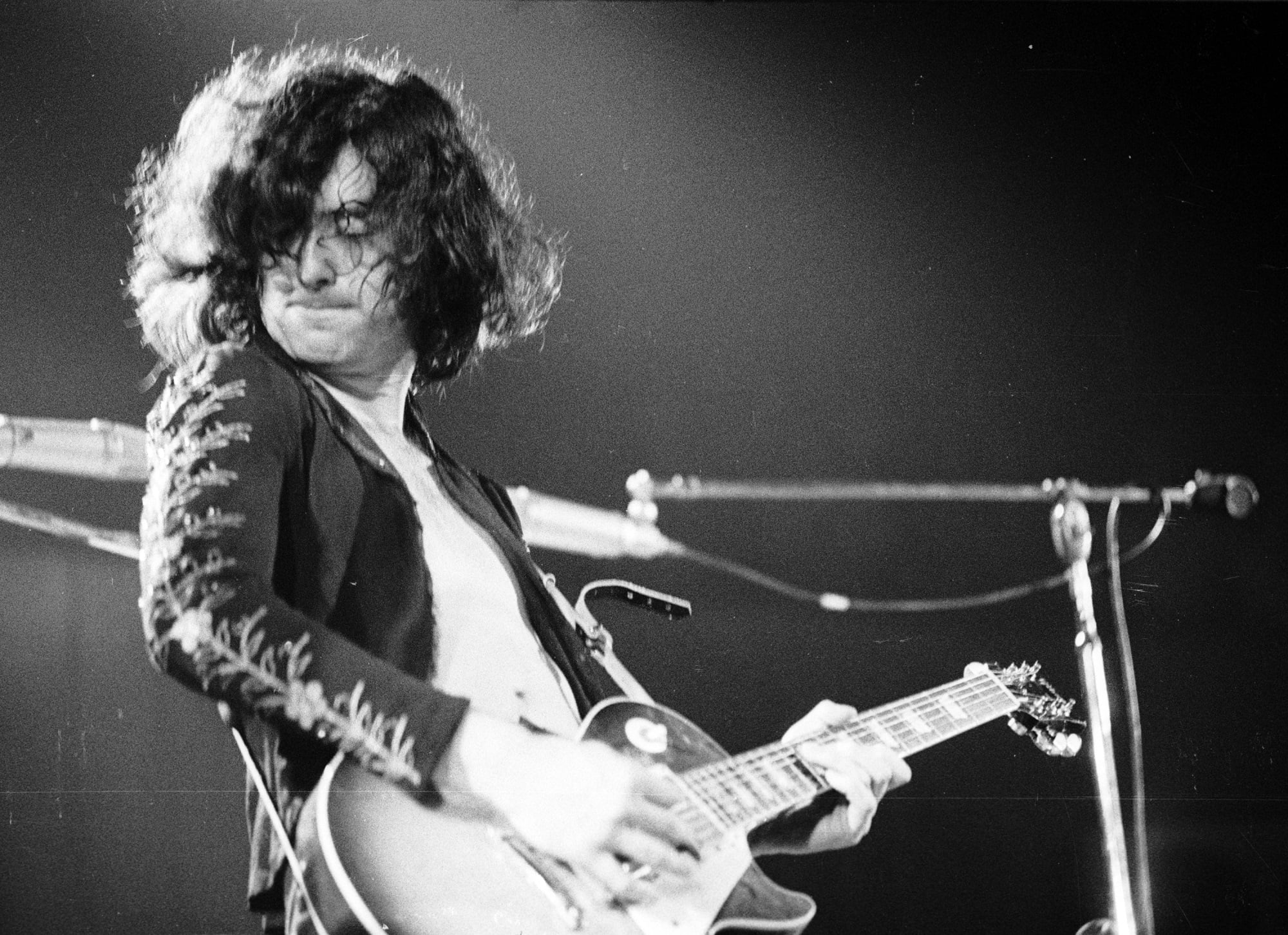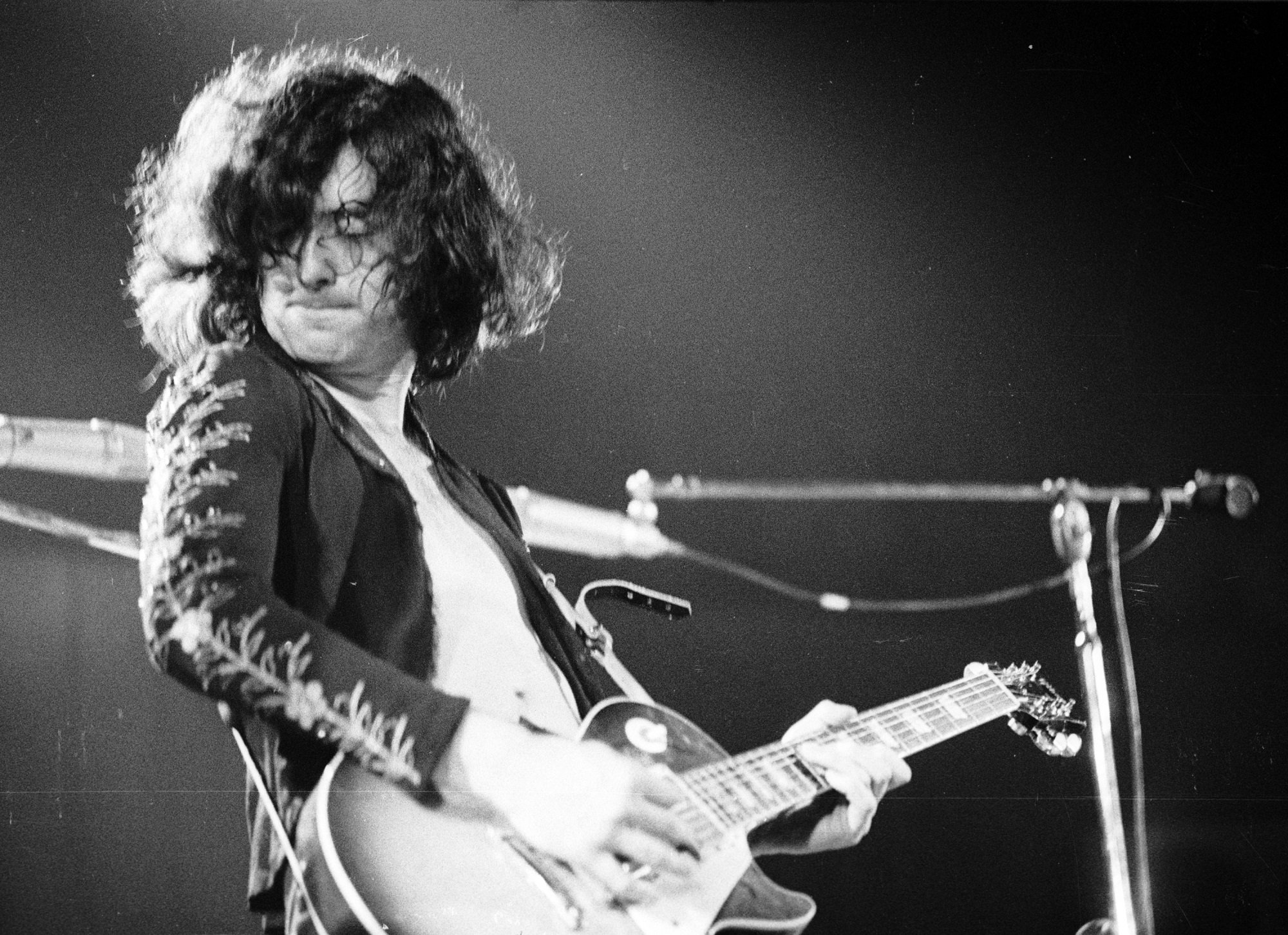
Jimmy Page Was Into Indian and Avant-Garde Music Before The Beatles
Jimmy Page rose to fame as a member of the rock band Led Zeppelin along with Robert Plant, John Paul Jones, and John Bonham. In 2020, Page was interviewed by Rolling Stone about his work in Led Zeppelin and his musical influences. The interview revealed that Page was drawn to Indian and avant-garde music before another iconic band, the Beatles.

How Jimmy Page came across Indian and avant-garde music
In the interview with Rolling Stone, Page was asked how he became interested in avant-garde and Indian music in the early 1960s. The publication made a note that at this time, “The Beatles were still singing ‘Love Me Do.'”
“We had BBC World Radio and Radio Four over here. Every now and again, they would play music from around the world. That’s where I first heard [composer] Krzysztof Penderecki’s Ode to the Victims of Hiroshima, which is a serious avant-garde piece. Oh, my goodness gracious, I just couldn’t believe what I was hearing,” Page answered.
The famous guitarist continued, “So, in the same way I’d heard Indian music and I’d heard sitar, and I just thought it was so beautiful. I could appreciate the way Indian musicians bent their strings because of the way blues and rockabilly musicians bend guitar strings. It seemed to be so refined, but it still seemed to be really passionate, and it still was saying so much.”
The guitarist incorporated Indian music into his guitar playing
To expand on his craft, Page began to incorporate the Indian music he admired while playing guitar and looked into playing a sitar.
“The thing is, with Indian music, there was a structure to it, and there was a science to it. It was mathematical, as well,” Page explained to Rolling Stone.
He continued, “I just really thought, ‘Well, I can try and do this on the guitar, but I think you’d probably do yourself a favor to try and access an instrument that really is a sitar.’ So, that’s what I did.”
How Jimmy Page integrated avant-garde music into his own
Speaking with Rolling Stone, Page explained how he worked to bring avant-garde methods to his own music.
“One of the things I brought into the equation, as a session musician, was the distortion box, the overdrive box. It was called a fuzz box at the time,” Page said.
The guitarist then told a story of what happened when he used the fuzz box in front of other musicians.
“Normally, session producers would say, ‘Have you got anything for this song?’ And I’d just come up with riffs. This time, I said, ‘Let’s see if [the fuzz box] works.’ So I put it in, and the faces of the other guitarists, who were, like, seven years older than me, turned ashen white, because they thought, ‘Oh, my God. This little punk is really filling all the different roles of guitar playing, and now he’s got this thing,'” Page recounted to Rolling Stone.
Page added, “Anyway. It got established immediately, and I was getting called up to do sessions. ‘Bring your own fuzz box,’ et cetera.”


